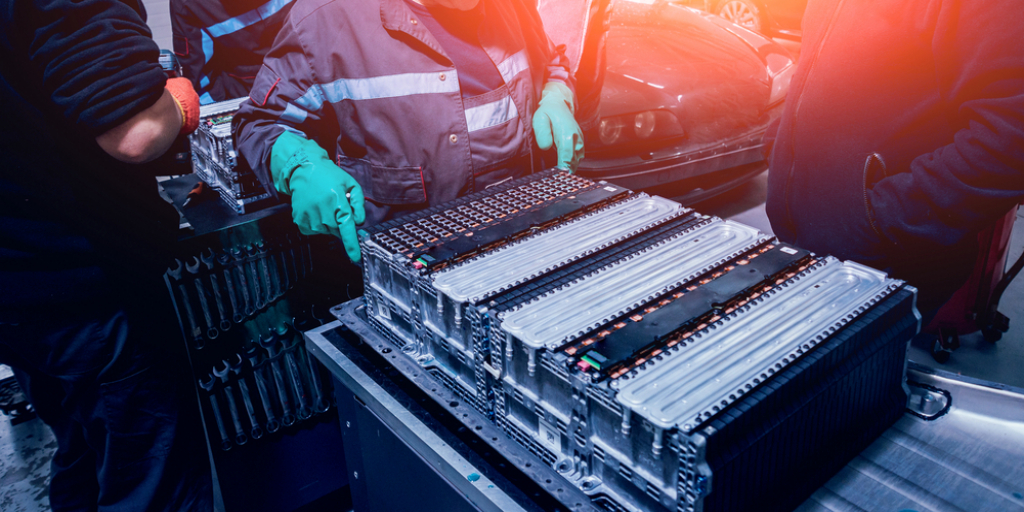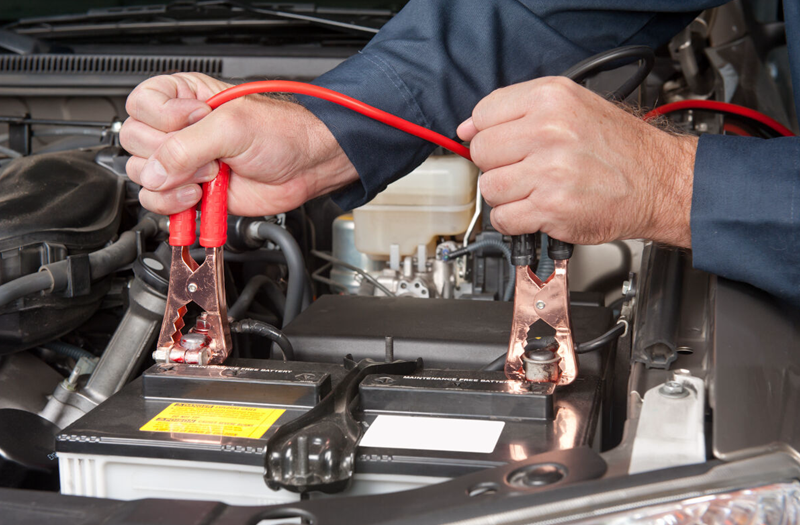Lithium Battery Power Stations: The Future of Energy Storage
序章
As the demand for renewable energy sources continues to rise, the need for efficient energy storage systems becomes increasingly crucial. Lithium battery power stations have emerged as a promising solution to address the challenges associated with renewable energy storage. These power stations utilize lithium-ion batteries, which are known for their high energy density, long cycle life, and fast charging capabilities. This article explores the potential of lithium battery power stations as the future of energy storage.
Advantages of Lithium Battery Power Stations
1. High Energy Density: Lithium-ion batteries possess a high energy density, enabling them to store a large amount of energy in a compact size. This characteristic is especially advantageous for applications where space is limited, such as urban areas or remote locations.
2. Long Cycle Life: Lithium-ion batteries have a longer cycle life compared to other battery technologies. They can be charged and discharged numerous times without significant capacity loss. This longevity makes them a cost-effective option for energy storage.
3. Fast Charging: Lithium-ion batteries can be charged at a much faster rate compared to other battery technologies. This allows for quick replenishment of stored energy, making them ideal for situations where a sudden surge in energy demand occurs.
4. Scalability: Lithium battery power stations can be easily scaled up or down depending on the energy requirements. This flexibility allows for the integration of renewable energy sources into the grid, ensuring a stable and reliable power supply.
Applications of Lithium Battery Power Stations
1. Renewable Energy Integration: Lithium battery power stations play a critical role in integrating renewable energy sources into the grid. They can store excess energy generated from sources like solar or wind power during periods of low demand and release it during peak demand, ensuring a consistent energy supply.
2. Off-Grid Power Supply: In remote areas where access to the grid is limited or non-existent, lithium battery power stations can provide a reliable source of power. These power stations can be deployed in rural communities, construction sites, or disaster-stricken areas, ensuring access to electricity for essential services.
3. Electric Vehicle Charging Infrastructure: The growing adoption of electric vehicles requires an extensive charging infrastructure. Lithium battery power stations can serve as fast-charging hubs, allowing electric vehicles to quickly recharge their batteries, reducing range anxiety and promoting the widespread use of electric vehicles.
4. Backup Power Supply: Lithium battery power stations can act as backup power supplies during grid outages. This is particularly useful in areas prone to natural disasters or regions with an unreliable grid infrastructure. The stored energy can be used to power critical facilities like hospitals, data centers, or emergency services.

Challenges and Future Outlook
While lithium battery power stations offer numerous advantages, there are challenges that need to be addressed to fully realize their potential. The production and disposal of lithium-ion batteries can have environmental implications if not managed properly. Additionally, the cost of lithium battery power stations needs to be reduced to make them more accessible to a broader range of applications.
However, technological advancements and economies of scale are driving down the cost of lithium-ion batteries, making them more affordable and viable for widespread deployment. Furthermore, research and development efforts are focused on improving battery performance, safety, and recyclability.
結論
Lithium battery power stations are poised to revolutionize the energy storage landscape. With their high energy density, long cycle life, fast charging capabilities, and scalability, these power stations offer a promising solution to address the challenges associated with renewable energy integration, off-grid power supply, electric vehicle charging, and backup power. As technology continues to advance and costs decrease, lithium battery power stations will play an increasingly significant role in shaping the future of energy storage.
-
 Introduction In recent years, with the growing demand for renewable energy sources and portable power solutions, the 12V 100Ah LiFePO4 battery has emerged as the ultimate power solution for various electrical needs. This technologically advanced battery offers several advantages over conventional options, making it an ideal choice for both residential and commercial applications. Unmatched Power and Efficiency ...続きを読む
Introduction In recent years, with the growing demand for renewable energy sources and portable power solutions, the 12V 100Ah LiFePO4 battery has emerged as the ultimate power solution for various electrical needs. This technologically advanced battery offers several advantages over conventional options, making it an ideal choice for both residential and commercial applications. Unmatched Power and Efficiency ...続きを読む -
 今日の急速に進歩する世界において、テクノロジーは私たちの日常生活に不可欠な部分となっています。スマートフォンから電気自動車に至るまで、ポータブルで効率的なエネルギー貯蔵に対する需要はかつてないほど高まっています。そして、この技術革命の中心には、現代世界を動かす原動力であるリチウムイオン電池があります。リチウムイオン電池の開発は...続きを読む
今日の急速に進歩する世界において、テクノロジーは私たちの日常生活に不可欠な部分となっています。スマートフォンから電気自動車に至るまで、ポータブルで効率的なエネルギー貯蔵に対する需要はかつてないほど高まっています。そして、この技術革命の中心には、現代世界を動かす原動力であるリチウムイオン電池があります。リチウムイオン電池の開発は...続きを読む -
 Introduction The world is experiencing a paradigm shift towards renewable energy sources as the need for sustainable solutions becomes increasingly urgent. Solar and wind energy are gaining popularity due to their clean and abundant nature. However, one significant challenge with these renewable sources is their intermittent nature, as they depend on weather conditions. To address this issue, advancements in...続きを読む
Introduction The world is experiencing a paradigm shift towards renewable energy sources as the need for sustainable solutions becomes increasingly urgent. Solar and wind energy are gaining popularity due to their clean and abundant nature. However, one significant challenge with these renewable sources is their intermittent nature, as they depend on weather conditions. To address this issue, advancements in...続きを読む -
 The industrial sector has always been a driving force behind economic growth and technological advancements. However, with the increasing demand for sustainable and efficient power solutions, it has become imperative for industries to adopt new technologies that can revolutionize their operations. One such technology that is transforming the industrial sector is industrial power products batteries. Industrial power products batteries...続きを読む
The industrial sector has always been a driving force behind economic growth and technological advancements. However, with the increasing demand for sustainable and efficient power solutions, it has become imperative for industries to adopt new technologies that can revolutionize their operations. One such technology that is transforming the industrial sector is industrial power products batteries. Industrial power products batteries...続きを読む -
 In the automotive field, the battery is one of the core components and its performance and quality are directly related to the starting, operation and overall performance of the vehicle. Today, let's take a closer look at the 12.8V 60Ah car battery and see what features and advantages it has. 1. Voltage and Capacity First, the voltage of the 12.8V...続きを読む
In the automotive field, the battery is one of the core components and its performance and quality are directly related to the starting, operation and overall performance of the vehicle. Today, let's take a closer look at the 12.8V 60Ah car battery and see what features and advantages it has. 1. Voltage and Capacity First, the voltage of the 12.8V...続きを読む -
 Electric scooters have become increasingly popular in recent years as a convenient and eco-friendly mode of transportation. However, one of the major limitations of electric scooters is their battery life. Many riders find themselves constantly searching for charging stations or carrying around spare batteries to ensure they don't run out of power during their journeys. But what if there was...続きを読む
Electric scooters have become increasingly popular in recent years as a convenient and eco-friendly mode of transportation. However, one of the major limitations of electric scooters is their battery life. Many riders find themselves constantly searching for charging stations or carrying around spare batteries to ensure they don't run out of power during their journeys. But what if there was...続きを読む -
 Are you an avid boater or sailor who loves to embark on exciting marine adventures? If so, you understand the importance of having reliable and powerful equipment to ensure uninterrupted experiences on the water. One crucial component that can make or break your adventures is the marine starting battery. This article will delve into the significance of a marine starting...続きを読む
Are you an avid boater or sailor who loves to embark on exciting marine adventures? If so, you understand the importance of having reliable and powerful equipment to ensure uninterrupted experiences on the water. One crucial component that can make or break your adventures is the marine starting battery. This article will delve into the significance of a marine starting...続きを読む

